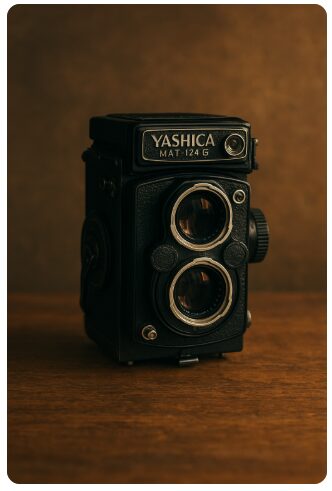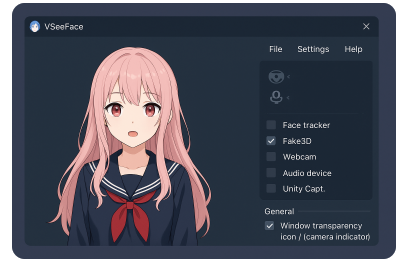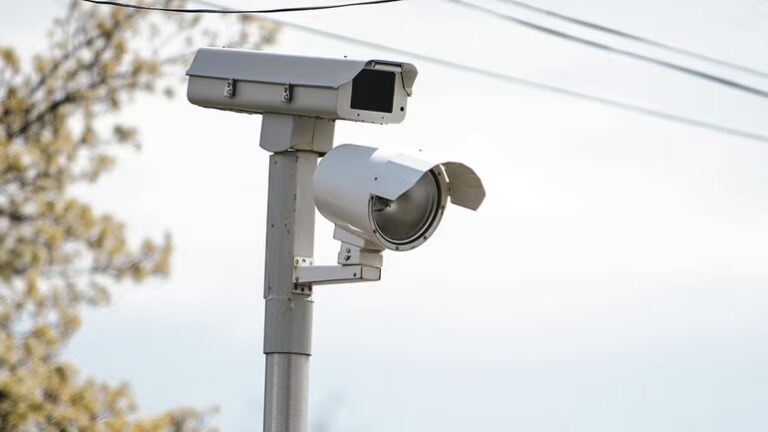Yashica Camera Mat 124 – Complete Guide, History, Features, and Why It Still Matters
1. Introduction
The Yashica Camera Mat 124 is one of the most admired twin-lens reflex (TLR) cameras ever made. Known for its solid build, remarkable image quality, and vintage charm, it continues to captivate photographers even in the digital age.
Designed for medium-format film photography, the Yashica Mat 124 allows users to shoot 6×6 cm square negatives on 120 or 220 film, producing high-resolution and beautifully toned images.
Its unique twin-lens setup and waist-level viewfinder make it a nostalgic yet practical tool for anyone wanting to experience the timeless art of film photography. In this guide, we’ll explore everything from its history and specifications to its modern-day relevance.
2. Historical Background
The Yashica Camera Mat 124 was introduced in the late 1960s by the Japanese company Yashica Co., Ltd. Yashica had already gained a solid reputation for making affordable and high-quality cameras for amateur and semi-professional photographers.
The company aimed to provide a medium-format experience that matched the performance of premium cameras like the Rolleiflex but at a more accessible price.
This model followed a series of TLR cameras by Yashica, including the Yashica-Mat, 12, and 24. The “124” in its name symbolized its compatibility with both 120 and 220 film types. Later, Yashica introduced an improved version — the Yashica Mat 124G — which offered better lens coating and minor cosmetic changes.
3. Technical Specifications
The Yashica Camera Mat 124 is a marvel of analog engineering. Below is a table summarizing its key specifications:
| Feature | Details |
|---|---|
| Film Type | 120 & 220 medium-format roll film |
| Image Size | 6×6 cm (square format) |
| Lens Type | Yashinon 80 mm f/3.5 (taking lens) & Yashikor 80 mm f/3.5 (viewing lens) |
| Shutter Type | Copal SV with speeds from 1 sec to 1/500 sec + Bulb |
| Viewfinder | Waist-level finder with ground glass focusing screen |
| Exposure Meter | Built-in CdS light meter powered by PX625 battery |
| Focus Range | 1 m to infinity |
| Weight | Approximately 1,100 grams |
| Body Material | Metal chassis with textured leatherette covering |
The camera’s Copal SV shutter is known for its reliability and smooth operation, while the Yashinon 80mm lens produces crisp images with excellent contrast and minimal distortion.
4. Design & Handling
The Yashica Camera Mat 124 features a durable metal body wrapped in textured leatherette, giving it both style and strength. The design reflects a vintage aesthetic that remains visually appealing to this day.
Its twin-lens reflex mechanism separates viewing and capturing functions: the top lens is for composing and focusing, while the bottom lens takes the actual photo. This design eliminates mirror slap vibration, resulting in sharper images.
Handling the Mat 124 requires a bit of patience and skill. Composing through the waist-level viewfinder can be an adjustment since the image appears reversed left-to-right. However, this slower, deliberate approach encourages thoughtful composition — something many digital photographers miss today.
5. Performance & Image Quality
When it comes to performance, the Yashica Camera Mat 124 delivers exceptional results. The combination of its 80 mm f/3.5 lens and large 6×6 cm negatives allows for incredible detail, sharpness, and smooth tonal transitions.
Photographers often describe the images as “rich” and “dreamy,” with a unique depth not achievable by smaller 35mm cameras. The lens performs beautifully even at wider apertures, producing soft background blur and clear subject separation.
The shutter speeds ranging up to 1/500 sec make it suitable for various lighting conditions, while the built-in light meter (when functional) simplifies exposure control. However, many photographers prefer using an external light meter for better accuracy.
6. Variants & Comparison
The Yashica Camera Mat 124 has a popular successor — the Yashica Mat 124G. While both cameras share the same design and core features, there are notable differences:
| Feature | Mat 124 | Mat 124G |
|---|---|---|
| Lens Coating | Standard single coating | Improved multi-coating |
| Trim | Chrome finish | Black enamel finish |
| Electrical Contacts | None | Gold-plated (to resist corrosion) |
| Light Meter | Same CdS design | Slightly refined |
| Market Availability | 1968–1970s | 1970–1986 |
Both models are highly respected, but the Mat 124G remains slightly more sought-after due to its improved lens coating and longer production run.
7. Common Issues & Maintenance
Being a vintage camera, the Yashica Camera Mat 124 may have a few issues due to age. Common concerns include:
- Light Meter Failure: The CdS light meter often stops working over time.
- Lens Fungus or Haze: If stored improperly, lenses can develop haze or fungus.
- Worn Shutter Mechanisms: Long use without maintenance can cause sluggish shutter speeds.
- Battery Compatibility: The original PX625 mercury batteries are banned; modern equivalents like 625A or adapters are required.
To maintain performance, a periodic CLA (clean, lubricate, adjust) service is recommended. Store the camera in a dry environment and always wind the film advance lever gently to avoid mechanical stress.
8. Shooting Tips & Creative Use
The Yashica Camera Mat 124 rewards patience and creativity. For best results:
- Use ISO 100–400 film for general shooting; Portra 160 or Ilford HP5 are great choices.
- Embrace the square format (6×6) for portraits, street scenes, or artistic compositions.
- Use a tripod for long exposures and low-light conditions.
- Experiment with filters such as yellow, red, or polarizers using the Bay-1 mount.
- Take advantage of the waist-level finder for discreet street photography and unique perspectives.
This camera encourages mindful photography — every shot counts, and the slow process enhances your artistic intent.
9. Market & Value
Despite being discontinued for decades, the Yashica Camera Mat 124 remains a favorite among film photographers and collectors. Prices vary based on condition:
| Condition | Approximate Price (USD) |
|---|---|
| Excellent / CLA’d | $350 – $500 |
| Good (working light meter) | $250 – $350 |
| Fair (minor cosmetic wear) | $150 – $250 |
| Non-working / For parts | $100 or less |
It’s widely available on platforms like eBay, KEH, and specialty vintage camera stores. Because it’s durable, even used models often perform well after minimal servicing.
10. Legacy & Modern Relevance
The Yashica Camera Mat 124 stands as a timeless symbol of craftsmanship and photographic artistry. It represents an era when photographers had to slow down, think, and compose every frame with care.
Today, many digital photographers seek out this camera to reconnect with the tactile joy of analog shooting. Its combination of affordability, image quality, and nostalgic design makes it one of the best entry-level medium-format cameras ever made.
11. Conclusion
The Yashica Camera Mat 124 isn’t just a tool — it’s a piece of photographic history. Its sturdy build, excellent optics, and classic design make it a worthy companion for film enthusiasts and collectors alike. Whether you’re a seasoned photographer exploring medium format or a newcomer curious about film, this camera offers a rewarding and educational experience that few modern devices can match.





